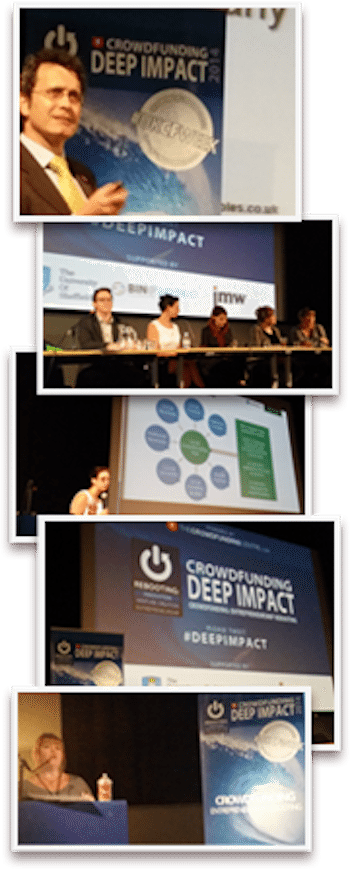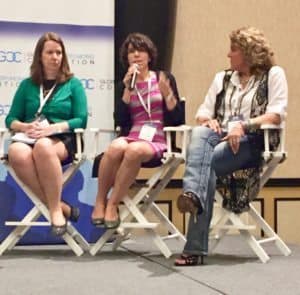 New routes to funding – and making them more widely available, are the focus of an international conference to be held at London Southbank University later this month. According to organizers, a book will be published in the new year based on end-to-end data from around half a million crowdfunds. Both will be discussed at the forthcoming event.
New routes to funding – and making them more widely available, are the focus of an international conference to be held at London Southbank University later this month. According to organizers, a book will be published in the new year based on end-to-end data from around half a million crowdfunds. Both will be discussed at the forthcoming event.
The conference will also be attended by business advisors from Growth Hubs across the UK as well as Business Support organizations including the Institute of Chartered Accountants of England and Wales, who will contribute to the discussion on further development.
The team behind the Crowdfunding Centre, who collected and analyzed the data have created a new model labeled the “Crowdonomic MINT” to help overcome the difficulties in explaining the dynamics of crowdfunding to those who have not experienced it.
Barry James, founder of the Crowdfunding Centre, said that business advisors and other experts are not referring people to crowdfunding even when this could be their best, or perhaps their only option.
“This is understandable because most of the knowledge and know-how around crowdfunding is still presented in anecdotal form and the expertise as a ‘black art’,” said James. “For obvious reasons this is not something business experts unfamiliar with the field can get behind – they need to understand what they’re referring to. We want to change all this by providing rigorous theory, based on evidence and data, as well as tools
these experts can use. To make crowdfunding more of a science so that it can become more mainstream. This is why we are holding this conference and we’ll publish the book “New Routes to Funding in the new year”.
James and his team seek to provide a framework to understand and use crowdfunding – and where the various forms are applicable – and how it can be used to unlock other forms of finance. James explains that the model and initial materials have been piloted with both business advisors working with one of the UK’s growth hubs and some of their budding entrepreneurs – with considerable success.
 Also presenting at the conference is Steve Carroll the “Access to Finance” adviser and SFEDI Accredited Mentor.
Also presenting at the conference is Steve Carroll the “Access to Finance” adviser and SFEDI Accredited Mentor.
“From the access to finance viewpoint it really was worthwhile. When one of our budding entrepreneurs expressed it as “Oh, That’s how it works”, that was the feeling around the room,” said Carroll. “The combination of the theory and all the data was a real eye-opener for us too and we can see it becoming more and more a mainstream option for business advisers, working alongside more traditional routes to funding”.
 Kathleen Minogue from Los Angeles-based Crowdfund Better called the Crowdonomic MINT a “breakthrough”.
Kathleen Minogue from Los Angeles-based Crowdfund Better called the Crowdonomic MINT a “breakthrough”.
“We have been following development and piloting of this very closely as it clearly has applications here in the US both in rewards crowdfunding and in tackling some of the challenges we have in equity funding as well” she said.
James believes that mentors, coaches, and other advisors are not the opposition. They are the people that support small businesses and they need to support them by providing salient advise and guiding them through the crowdfunding process.
“We need to support them through this change,” said James. “Providing the platform is not enough if we want widespread adoption – which is what it will take to really start to address the needs of people and society, rather than just the early adopters.”
“[they need] the evidence, the theoretical basis and philosophical underpinnings in order to understand and get behind it. We can’t expect them to get behind anecdotes and alchemy, marketing and commercial offers, without this…”


 these experts can use. To make crowdfunding more of a science so that it can become more mainstream. This is why we are holding this conference and we’ll publish the book “New Routes to Funding in the new year”.
these experts can use. To make crowdfunding more of a science so that it can become more mainstream. This is why we are holding this conference and we’ll publish the book “New Routes to Funding in the new year”.